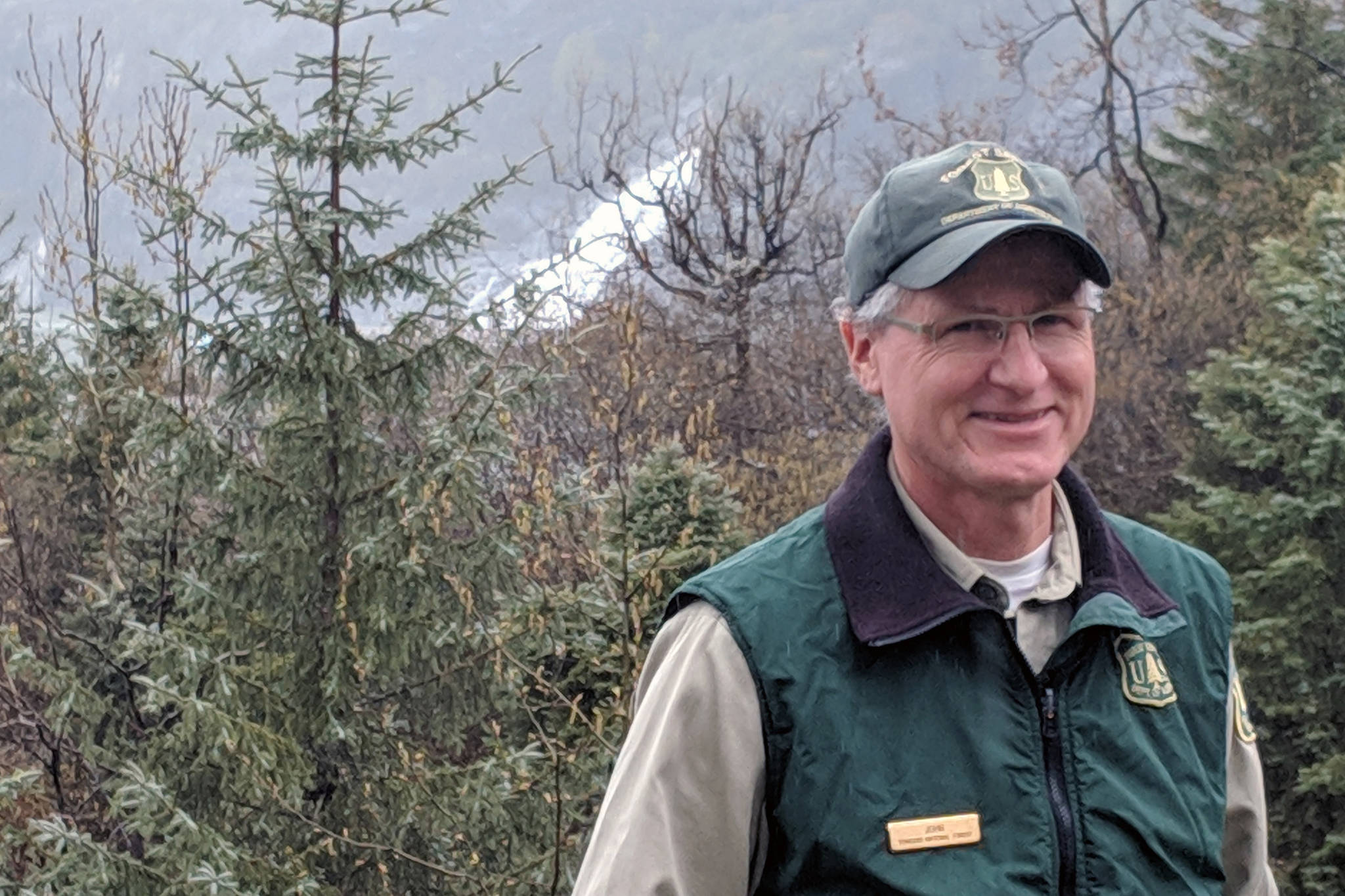By John Neary
I write to express my disappointment in recent changes proposed by the U.S. Forest Service to facilities at the Mendenhall Glacier Recreation Area. The proposal continues to lack the vision needed for a project that will span generations and affect millions. It will also unacceptably alter wetland habitat near a sensitive salmon stream. Despite many comments submitted in opposition last year, the current proposal remains almost unchanged. The two issues they outline, crowding by more visitors and impacts to fish and wildlife, are certainly of concern, but why isn’t climate change mentioned since it is dramatically changing the ecology and human experience of the Mendenhall Glacier Recreation Area? The Forest Service needs to demonstrate solutions that do not burn fossil fuels and do not contribute greenhouse gases to our atmosphere. Renewable energy is a positive, organizing theme for our future and it is wholly lacking in their proposal.
The Forest Service continues to propose a massive new parking lot at the end of the Glacier Spur Road rather than reducing traffic congestion there with solutions that don’t bury sensitive wetlands under rock. A remote parking lot with electric circulating trams would solve the problem, but if this is too disruptive, why not at least strike a deal with the City and Borough of Juneau to use the new electric buses they will soon get to continuously circulate between the docks and visitor center? This would allow more visitors easy access within the current footprint of parking. The encroachment of many additional parking spaces near Steep Creek will create more urban noise along the walkways and threaten the waters with oily engine waste.
Expanding the exhibit floor and other amenities at the visitor center is long overdue but why not include a new exhibit about glacier science and climate change which has already been designed? They should also push for LEED certification of this historic building by upgrading the heating system to heat pumps, preferably with geothermal power that also heats other new buildings. These efforts would demonstrate leadership by the Forest Service in tackling climate change while fulfilling federal executive orders and regulations designed to increase building efficiency and achieve net-zero status.
Proposed motorboats on Mendenhall Lake remain controversial with Juneau residents. “Alternative energy” motors aren’t enough when there are now battery-electric marine propulsion systems that would offer cleaner operations, like the vessel promoted by a Juneau company. The USFS proposal should require something like them and the design of docks along the shore should allow for their recharging and operation.
In summary, the Forest Service has an opportunity to cooperate with the City and Borough of Juneau to fulfill a partnership that is beneficial to all. As stewards of the premier destination for visitors to Juneau they have a unique responsibility to help the city fulfill ambitious goals outlined in the Juneau Renewable Energy Strategy. Their responsibility also extends to the million visitors from around the world who are forecast to annually visit this destination to see a glacier that is shrinking from view. It’s far more important to guide them to a sustainable future powered by renewable energy, instead of cramming more of them into the same space using outdated designs from the last century.
The US Forest Service wants your comments on this proposal by Jan. 15. Please submit your ideas to them at comments-alaska-tongass-juneau@usda.gov
• John Neary retired in 2019 from a 37-year career with the US Forest Service, most recently as Director of the Mendenhall Glacier Visitor Center. He is now a board member of Renewable Juneau, advocating for the fulfillment of the Juneau Renewable Energy Strategy through adoption of beneficial electrification.

